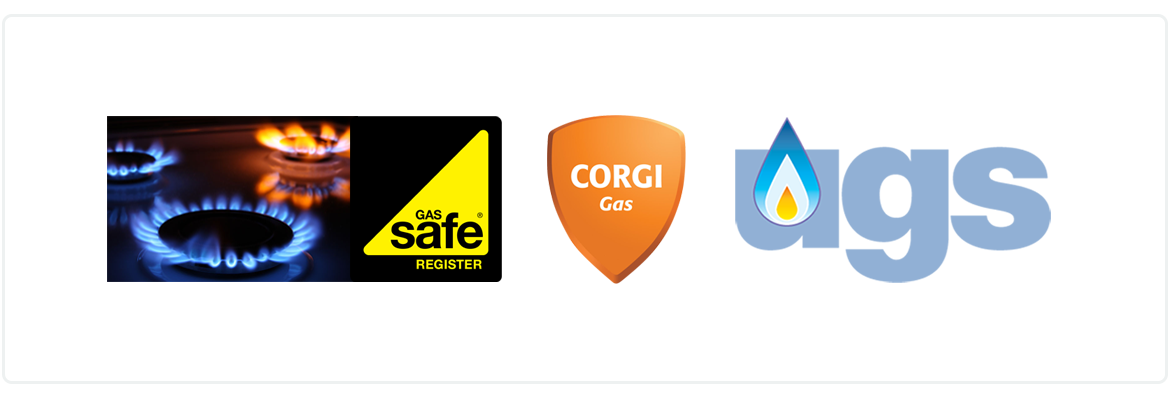Keep your boiler effectively with these tips to sidestep expensive repairs. On a regular basis evaluate and clean up to guarantee appropriate heat transfer. Screen pressure and temperature level vigilantly to catch problems early. Hemorrhage your radiators annually for peak performance. Address leakages without delay to avoid damage. Inspect and preserve ventilation to stay clear of overheating issues. Remember to arrange expert maintenance yearly. These methods will certainly assist maintain your boiler running smoothly and save you from unanticipated expenses.
To ensure the peak efficiency of your central heating boiler, routinely inspect and clean it to stop possible problems. Cleansing methods play a vital duty in preserving your boiler's effectiveness. Beginning by shutting off the central heating boiler and enabling it to cool off before cleansing. Make use of a soft brush to get rid of dirt and particles from the external surfaces. For the interior, take into consideration using a hoover to eliminate any type of build-up. Furthermore, check the burner and warmth exchanger for any signs of rust or clogs. Frequently cleaning up these parts will certainly help make sure proper warmth transfer and burning, preventing any kind of malfunctions.
In terms of evaluation frequency, objective to examine your boiler at least as soon as a month. This normal examination will aid you catch any kind of minor problems before they rise into significant problems. Look for leaks, uncommon sounds, or any type of noticeable damage throughout your examinations. By staying positive with cleaning and examinations, you can prolong the life-span of your boiler and prevent expensive repairs down the line.
Make sure to regularly inspect the pressure gauge readings on your central heating boiler to confirm they're within the suitable range.
Proper positioning of the temperature sensing unit is essential for exact readings and reliable central heating boiler operation.
Develop a constant routine for keeping an eye on both stress and temperature level to catch any type of problems early.

Monitoring pressure and temperature with the pressure scale analyses is important for preserving the effectiveness and safety of your boiler system. To assure everything is running efficiently, adhere to these suggestions:
Normal Checks: Make it a habit to monitor the pressure gauge analyses frequently to catch any problems early on.
Fixing Tips: Acquaint on your own with the regular pressure and temperature level varieties, so you can rapidly determine any issues that may occur.

Maintenance Checks: Schedule regular maintenance checks by a specialist to calibrate the pressure scale and guarantee accurate analyses.
Frequently checking the positioning of temperature level sensing units is important for effectively monitoring pressure and temperature level in your boiler system. Appropriate sensor calibration warranties precise analyses, enabling you to discover prospective issues prior to they rise.
Positioning sensing units in locations with regular warmth distribution is necessary to getting reliable temperature readings throughout the system. By making sure sensors are properly positioned and adjusted, you can proactively deal with any type of fluctuations in temperature level, protecting against pricey damages and boosting the total performance of your boiler.
To assure the peak efficiency of your central heating boiler system, establish a constant monitoring schedule for pressure and temperature readings. Consistently monitoring these elements is important in ensuring the effectiveness and durability of your boiler.

Below are some key points to take into consideration:
Monitoring effectiveness degrees: Maintaining a close eye on pressure and temperature level permits you to analyze the effectiveness of your central heating boiler system precisely.
Early detection strategies: By keeping an eye on stress and temperature level consistently, you can quickly identify any type of prospective issues prior to they intensify right into pricey repairs.
Preventative maintenance: Implementing a proactive surveillance routine helps stop unanticipated failures and ensures your central heating boiler runs at its best.
To maintain peak performance, see to it you hemorrhage your radiators each year.
Hemorrhaging radiators releases trapped air, allowing them to function at their finest.
This simple task can prevent issues like cool areas and uneven heating in your home.
Hemorrhaging your radiators annually is vital to assure efficient heat distribution throughout your home. When air obtains entraped in your radiators, it can prevent their performance, resulting in chilly places and minimized overall efficiency. By hemorrhaging your radiators, you see to it that they're working at their best, providing constant heat throughout the chillier months.
Below are vital benefits of yearly radiator bleeding:
Consistently bleeding your radiators is crucial for maintaining peak home heating efficiency in your house throughout the year. The bleeding procedure involves releasing entraped air from the radiators, ensuring that hot water can stream easily and heat your areas efficiently.
When air accumulates inside the system, it produces clogs that avoid the radiator from heating up completely, resulting in chilly spots in your home and lowering the general performance of your heater. By bleeding your radiators every year, you can eliminate any trapped air, allowing the hot water to flow unhampered and evenly disperse warmth.
This basic upkeep job helps optimize your heater's performance, maintaining your home warm and comfy while minimizing power consumption.
Whenever you discover leakages in your central heating boiler system, it is essential to take immediate activity to prevent additional damage and guarantee reliable operation. Attending to leakages without delay can conserve you from pricey fixings down the line. Right here's what you need to do:
Drip Discovery: Consistently evaluate your central heating boiler for any kind of indicators of leaks, such as water puddles or moisture around the unit. Use a flashlight to check concealed areas for leakages also.
Fixing Solutions: When you recognize a leak, establish its resource. Common causes include loose installations, rust, or a malfunctioning pressure relief valve. Depending upon the intensity of the leak, you might need to tighten up connections, change damaged parts, or look for specialist aid.
Monitor Frequently: After resolving the initial leakage, check your boiler system frequently to ensure the problem does not return. By remaining vigilant, you can capture leaks early and prevent them from intensifying right into even more considerable troubles.
To guarantee the safety and effectiveness of your central heating boiler system, it's important to on a regular basis check and preserve correct ventilation. Begin by carrying out a complete ventilation examination to see to it that there are no clogs or blockages that can hamper the flow of air.
Proper ventilation is essential for enabling your central heating boiler to operate at its finest degree and protecting against the build-up of hazardous gases like carbon monoxide. Normal ventilation upkeep, such as cleaning up vents and ducts, can help improve air flow and prevent overheating concerns.
Ignoring correct ventilation can result in inadequacies in your boiler system, potentially creating it to work more difficult and increasing the threat of malfunctions. By staying proactive with ventilation checks and maintenance, you can expand the life expectancy of your boiler and stay clear of pricey repairs down the line.
Consider booking a specialist maintenance for your boiler system each year to assure its peak performance and long life. Routine upkeep by a skilled professional can aid prevent unforeseen failures and costly repair work down the line.
Right here are some vital reasons why scheduling specialist servicing each year is vital:
Solution Reminders: By establishing annual maintenance, you can make sure that your central heating boiler is regularly inspected and maintained on schedule without the threat of forgetting about it.
Upkeep Checklist: Professional service technicians comply with a complete maintenance checklist during servicing, that includes jobs like cleansing components, looking for leaks, screening safety controls, and making certain effective procedure.
Long life and Efficiency: Yearly maintenance aids in lengthening the life expectancy of your central heating boiler and maintaining its effectiveness. A properly maintained boiler not just runs smoothly however likewise eats less energy, leading to set you back financial savings in the long run.
High water pressure can without a doubt damage a boiler. When stress regulation isn't preserved, the extreme force can cause numerous issues, including water damages.
It is necessary to check and readjust the stress degrees to avoid any kind of prospective injury to your boiler. Normal checks and adjustments can help you prevent expensive repair work down the line.
If you believe a boiler leakage, expect indications like water puddles around the device, sudden drops in water stress, or unusual noises. Spotting leaks early can avoid comprehensive damage.
Repair choices may consist of dealing with the leak, replacing harmed parts, or upgrading the system if needed. Routine maintenance and punctual interest to leakages can decrease fixing costs and guarantee your central heating boiler runs successfully.
To guarantee radiator effectiveness, hemorrhaging all radiators in your house is necessary. Air pockets can form in the system, leading to decreased heat circulation. By bleeding each radiator, you release trapped air, enabling hot water to stream easily and warm your home evenly.
This straightforward job can enhance your heating unit's performance and prevent possible concerns down the line.
To enhance air flow in your boiler room, consider enhancing air movement by setting up an air vent fan or opening home windows. Proper insulation can also help regulate the temperature and keep the area well-ventilated.
If your central heating boiler shows error codes, adhere to these fixing steps.
Begin by inspecting the guidebook for error code meanings.
Reset the boiler and see if the error lingers.
Validate there's no blockage in vents or pipes.
If the issue continues, speak to a specialist for support.
Comprehending error codes can help you attend to the issue promptly and prevent further issues.
By complying with these preventative upkeep ideas, you can stay clear of pricey boiler fixings and guarantee your system runs smoothly all the time.
Remember to:
- Routinely examine and clean your central heating boiler,
- Display pressure and temperature level,
- Bleed radiators every year,
- Address leakages immediately,
- Check air flow, and
- Set up professional maintenance every year.
Taking these simple actions will certainly assist stop break downs and maintain your boiler in leading condition. https://www.google.com/maps?cid=3118858483591648307